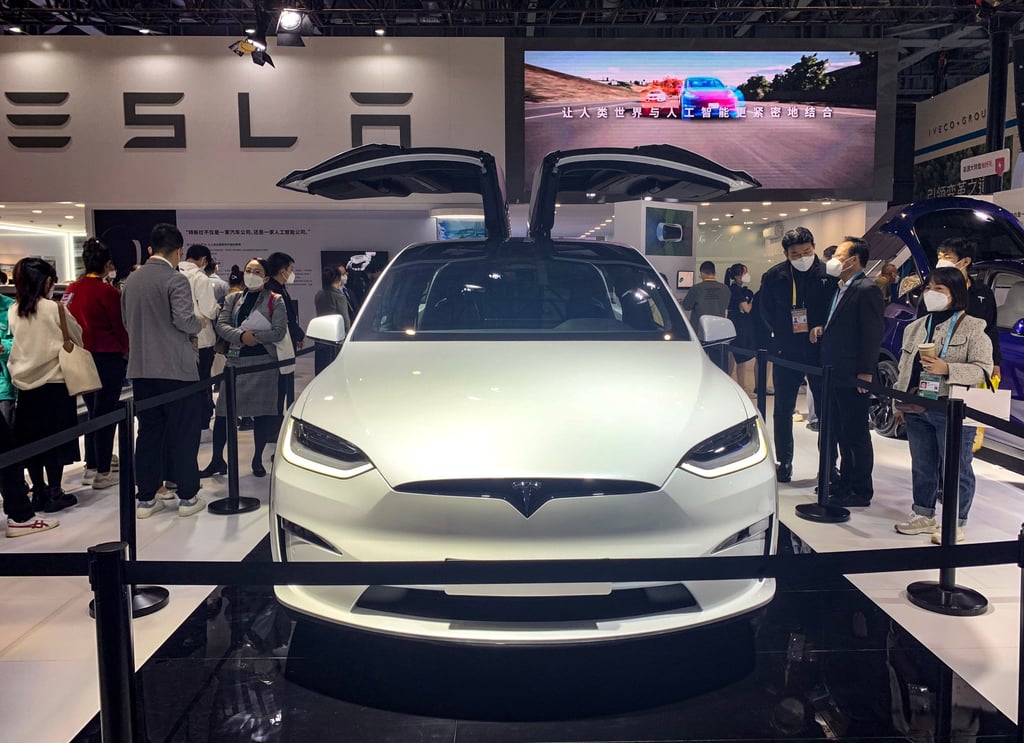Tesla raises prices of imported Model S and Model X cars in China, signalling an end to price war with BYD, Xpeng
- US carmaker to lift prices of imported Model S and Model X by about 2 per cent, after bumping up those on Shanghai-made Model 3 and Model Y this week
- Price increases a message to market that Tesla is ending a price war it started in October, analyst at Suolei advisory says

The Texas-based carmaker bumped up the prices of its imported models by about 2 per cent on Friday, according to data on its local website. The move came after it raised prices on its Shanghai-built EVs on Tuesday, which also followed several rounds of increases in the US.
Tesla now offers a dual-motor Model S at 808,900 yuan (US$117,079), up from 789,900 yuan, according to its China website, while the tri-motor version will cost 1.9 per cent more at 1.03 million yuan.
The dual-motor Model X sport-utility vehicle has been adjusted by 2.2 per cent to 898,900 yuan, while the tri-motor edition was reset 1.8 per cent higher at 1.06 million yuan, the website showed.

Analysts said the price hikes signalled billionaire Elon Musk’s latest attempt to withdraw from a price war that eroded the profitability of many of its Chinese competitors. Tesla had the slimmest margin in two years last quarter, partly due to higher material and warranty costs.
“Tesla is sending a message to the Chinese market that it does not want to be involved in the price war any longer,” said Eric Han, a senior manager at Suolei, an advisory firm in Shanghai. “All Chinese EV makers will be relieved, since they do not have to offer further discounts at the expense of their profitability.”
